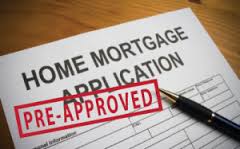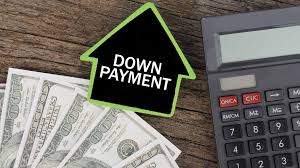Don’t spend any more sleepless nights worrying about money. A safe, secure Reverse Mortgage may provide the peace of mind you need. What is a Reverse Mortgage?
What is a Reverse Mortgage?
A Reverse Mortgage is a safe secure and easy way for seniors to turn their home’s equity into the cash they need to meet any financial need.
Unlike traditional home equity loans, this product does not require repayment of any kind until the property is sold or the borrower permanently leaves their primary residence. The homeowner is responsible for taxes and home insurance, but there is no monthly mortgage payment obligation.
Who Qualifies?
Qualification is simple. Property owners must be at least 62 years old and occupy the property as their primary residence.
How Are the Loan Proceeds Paid?
A Reverse Mortgage borrower can select from the following choices.
• Lump Sum
• A monthly payment for life
• Payments for a specific period
• A Line of Credit
• A combination of these choices
How “Safe” is a Reverse Mortgage?
Reverse Mortgages are a very safe income option for senior homeowners.
Lenders are strictly regulated by the Federal Government, and must comply with the rigorous standards of industry associations.
Borrower Responsibilities
• Attend a Reverse Mortgage counseling session
• Maintain the property
• Continue to pay taxes and home insurance
Common Misconceptions
There are several misconceptions surrounding the Reverse Mortgage program.
“The lender can take my home”
Nothing can be further from the truth. A Reverse Mortgage borrower retains exclusive title to their home.
“I can be thrown out of my home”
This is untrue. A Reverse Mortgage borrower can stay in their home as long as they wish.
“What happens when I owe more than my home is worth?”
A reverse mortgage borrower is protected by federal mortgage insurance from owing more than the property is worth. This insurance will make up the difference to the lender when the property is sold.
How Can the Funds Be Used?
Reverse Mortgage borrowers may use the loan proceeds for whatever they wish/
• Payoff their current mortgage
• Payoff home equity loans
• Payoff credit cards
• Make home repairs or remodel
• Pay delinquent taxes
• Stop Foreclosure
• Downsize to a new home
• Travel
• Buy a new car
How Much Can I Borrow?
How much a borrower can benefit from a Reverse Mortgage depends upon the borrower’s age, interest rates and the current Value of their home. This is strictly regulated by the federal government to protect the borrower.
Eligible Property Types
• Single Family Owner-Occupied houses
• Condominiums
• Multi-Family Owner-Occupied Property
• Planned Unit Developments
The Process: Simple, Clear Cut
1. The first step is to dicuss your goals and needs with an experienced mortgage loan officer you can trust. You are encouraged to involve family members or professional advisors during the process.
2. When you and your loan officer decide that a Reverse Mortgage is right for you, the next step is an interview with a Federal Government approved Counseling Agency.
3. After the counseling is complete, the loan officer wil arrange for a property appraisal.
4. A brief application will be completed and submitted to the lender for approval.
5. Your loan will be processed and scheduled to close.
6. Sit back and enjoy the peace of mind a Reverse Mortgage will provide.
Testimonial
At first I was not sure about a Reverse Mortgage. Rick Cignoli and his team took the time to explain the program. Rick helped me identify how a Reverse Mortgage would help and how a Reverse Mortgage would help me live comfortably and financially secure in my own home. Robert R.
Reach out to Rick Cignoli @ 860.945.9284 to find out if a Reverse Mortgage is the right mortgage option for your family.
 Whether you’re a First-Time Homebuyer or it’s been many years since you last went through the mortgage process, there are bound to be questions that come up along the way. You should never feel embarrassed to ask your loan officer any question, no matter how simple you may think it is. However, if you want to start with some mortgage basics, here are the answers to Five Homebuying Questions You Shouldn’t Feel Embarrassed to Ask!
Whether you’re a First-Time Homebuyer or it’s been many years since you last went through the mortgage process, there are bound to be questions that come up along the way. You should never feel embarrassed to ask your loan officer any question, no matter how simple you may think it is. However, if you want to start with some mortgage basics, here are the answers to Five Homebuying Questions You Shouldn’t Feel Embarrassed to Ask! where to settle down, some have poor credit and fear they won’t get approved. As a
where to settle down, some have poor credit and fear they won’t get approved. As a  this out as soon as possible. Once you know, you will be able to see where you need to do work to improve it. Whether it is paying down credit cards, or enlisting the help of a credit repair service, your credit score is crucial to the mortgage application process. It is best to start preparing now!
this out as soon as possible. Once you know, you will be able to see where you need to do work to improve it. Whether it is paying down credit cards, or enlisting the help of a credit repair service, your credit score is crucial to the mortgage application process. It is best to start preparing now! moving expenses, as well as repairs and furnishings to include in your budget. For a goal of collecting $20,000 over the next two years, you would need to save $833 each month. If you can’t find room in your budget to set that aside every month, consider extending your timeline a bit longer. If someone in your life will be gifting you funds to assist in the home purchase, try to discuss what that amount will be, so you can adjust your own savings plan accordingly.
moving expenses, as well as repairs and furnishings to include in your budget. For a goal of collecting $20,000 over the next two years, you would need to save $833 each month. If you can’t find room in your budget to set that aside every month, consider extending your timeline a bit longer. If someone in your life will be gifting you funds to assist in the home purchase, try to discuss what that amount will be, so you can adjust your own savings plan accordingly. start the official home buying process. When the time is right, reach out to
start the official home buying process. When the time is right, reach out to  house you can afford. This amount is based on a formula that compares your income to your total outstanding debts plus the proposed new monthly housing expense ( mortgage payment, taxes insurance and PMI) This will keep you focused on the big picture and help to prevent being disappointed if you fall in love with a house that is too expensive.
house you can afford. This amount is based on a formula that compares your income to your total outstanding debts plus the proposed new monthly housing expense ( mortgage payment, taxes insurance and PMI) This will keep you focused on the big picture and help to prevent being disappointed if you fall in love with a house that is too expensive.
 Like making the perfect music playlist for your road trip that thrills all passengers, buying a home requires that you build a “Top Ten Homebuying Playlist” of sorts – one that makes your journey less stressful and more successful.
Like making the perfect music playlist for your road trip that thrills all passengers, buying a home requires that you build a “Top Ten Homebuying Playlist” of sorts – one that makes your journey less stressful and more successful. When looking at a potential home purchase, don’t forget to factor property taxes into your budget. Be sure to consider homeowner’s insurance and, if necessary, your monthly PMI premium too. All will be included in your monthly mortgage payment obligation.
When looking at a potential home purchase, don’t forget to factor property taxes into your budget. Be sure to consider homeowner’s insurance and, if necessary, your monthly PMI premium too. All will be included in your monthly mortgage payment obligation. How would a buyer know if they are ready to buy a house?
How would a buyer know if they are ready to buy a house? officer at a local lender whom they trust. Some of the factors that are taken into consideration to be Pre-Approved are to always maintain a good credit score, income and asset verification and employment status.
officer at a local lender whom they trust. Some of the factors that are taken into consideration to be Pre-Approved are to always maintain a good credit score, income and asset verification and employment status. The agent and the loan officer should never pass any stress onto the buyer.
The agent and the loan officer should never pass any stress onto the buyer. 

 Many borrowers choose to buy their home with another person. Whether it is a spouse, parent, sibling or some other person you trust, it is important to know what to look for in a “purchasing partner,” including the Difference between a Co-Borrower and a Co-Signer.
Many borrowers choose to buy their home with another person. Whether it is a spouse, parent, sibling or some other person you trust, it is important to know what to look for in a “purchasing partner,” including the Difference between a Co-Borrower and a Co-Signer.  This scenario would be quite rare in the mortgage world. Most lenders today require all borrowers to have a vested interest in the collateral securing the mortgage. A co-signer is usually required when the primary borrower does not have the credit history to make a satisfactory determination of their intent to repay the debt; perhaps their first credit card or first car loan.
This scenario would be quite rare in the mortgage world. Most lenders today require all borrowers to have a vested interest in the collateral securing the mortgage. A co-signer is usually required when the primary borrower does not have the credit history to make a satisfactory determination of their intent to repay the debt; perhaps their first credit card or first car loan.  CREDIT SCORE: A number ranging from 350 – 800 that is based on an analysis of your credit files. Your credit score plays a significant role when applying for a mortgage. The score helps lenders determine the likelihood that you’ll repay future debt payments. The higher your score, the lower the risk of default, the more mortgage program options available to you, including a lower interest rate and lower payments.
CREDIT SCORE: A number ranging from 350 – 800 that is based on an analysis of your credit files. Your credit score plays a significant role when applying for a mortgage. The score helps lenders determine the likelihood that you’ll repay future debt payments. The higher your score, the lower the risk of default, the more mortgage program options available to you, including a lower interest rate and lower payments. buy your new home. The APR includes the not only the total interest rate cost, it also includes points, lender processing fees, and certain other credit charges a borrower is required to pay in order to get the loan Since costs are added to the total interest rate cost, the APR is usually higher than the interest rate.
buy your new home. The APR includes the not only the total interest rate cost, it also includes points, lender processing fees, and certain other credit charges a borrower is required to pay in order to get the loan Since costs are added to the total interest rate cost, the APR is usually higher than the interest rate. the property. The larger the down payment the greater your share of ownership in the house and the lower the perceived risk by the lender. The lower the risk, the lower the interest rate on your mortgage. The reverse is true too. The smaller the down payment, the greater the risk of default and the higher the interest rate. Down payments are typically 3 to 20% of the purchase price of the home.
the property. The larger the down payment the greater your share of ownership in the house and the lower the perceived risk by the lender. The lower the risk, the lower the interest rate on your mortgage. The reverse is true too. The smaller the down payment, the greater the risk of default and the higher the interest rate. Down payments are typically 3 to 20% of the purchase price of the home. called PMI, is a type of mortgage insurance you are required to pay for if you are financing more than 80% of the home’s appraised value. Like other kinds of mortgage insurance, PMI protects the lender—not you—if you stop making payments on your loan. PMI is the term commonly used for conventional mortgage. With FHA loans, it is known as the annual Mortgage Insurance Premium (MIP). There is no PMI on VA Loans.
called PMI, is a type of mortgage insurance you are required to pay for if you are financing more than 80% of the home’s appraised value. Like other kinds of mortgage insurance, PMI protects the lender—not you—if you stop making payments on your loan. PMI is the term commonly used for conventional mortgage. With FHA loans, it is known as the annual Mortgage Insurance Premium (MIP). There is no PMI on VA Loans.

You must be logged in to post a comment.